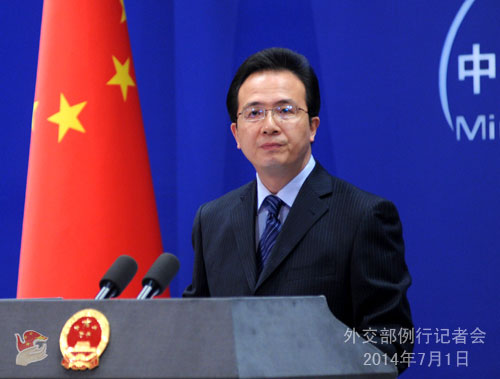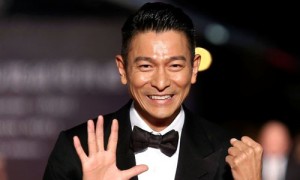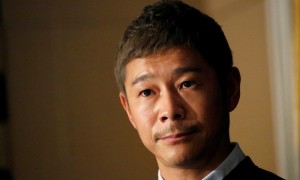评日本修宪解禁集体自卫权
China calls the Japanese Cabinet’s resolution, that reinterpreted its Pacifist Constitution, a brutal violation of its spirit. Beijing questions whether Japan will change its path of peaceful development, which has been upheld since World War Two.
China has also protested Tokyo’s strategy of pushing a domestic political agenda by hyping up the "China threat". Under the new policy, Japan’s cabinet has paved the way for its military to fight overseas.

Hong Lei, Spokesman of Chinese Foreign Ministry said "The new policy raises doubts about Japan’s approach to peaceful development. We urge Japan to sincerely respect the rightful concerns of neighboring Asian countries, diligently solve any related issues, and not affect China’s rights and the stability of the region."
Widespread protests after the announcement on the policy for Constitutional change. A change to the decades old ban on collective self-defense. The move has angered China, with whom relations are already strained.
"The new policy raises doubts about Japan’s approach to peaceful development. We urge Japan to sincerely respect the rightful concerns of neighboring Asian countries, diligently solve any related issues, and not affect China’s rights and the stability of the region." Hong Lei, Spokesman of Chinese Foreign Ministry said.
As part of its so called "proactive contribution to peace", the Abe Cabinet has allowed for Japanese involvement in the defense of its allies. this move has paved the way for Japan to send its troops to fight overseas. many regard this as the first step in what could be the renewed militarisation of Japan.
Abe’s visit to the Yasukuni shrine, which also houses war criminals and the debate over responsibility for comfort women, have already deteriorated Japan’s relations with neighbors in East Asia.
China has strongly accused Japan of ignoring international norms, stretching the limits of its pacifist Constitution and bolstering the military.
Earlier, during the Shangri-la Defense Dialogue, PLA’s Deputy Chief of Joint Staff, Wang Guanzhong urged the Japanese government to dispel doubts and concerns stemming from history, abandon historical revisionism and behave properly in a bid to win confidence from neighboring countries.
Most Chinese believe Japan’s constitutional change is a fundamental departure from the postwar defense posture. The release of Japan’s collective self-defense abilities will add new tensions in the region. The uncertainties over Japan’s move will prompt Japan’s Asian neighbors to adjust their policies in the future.







